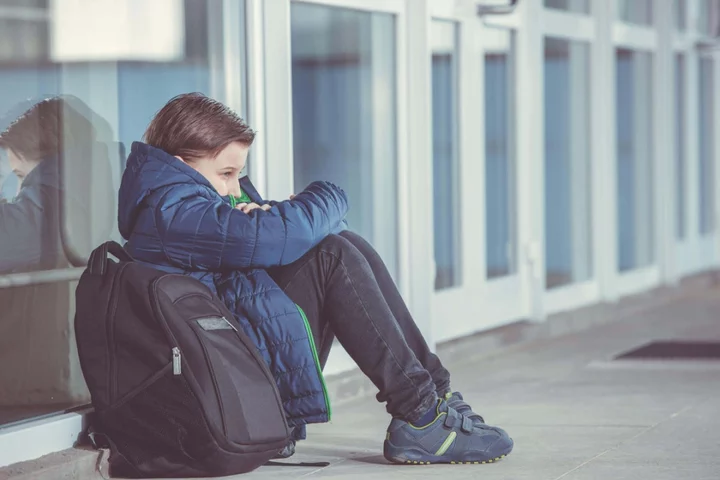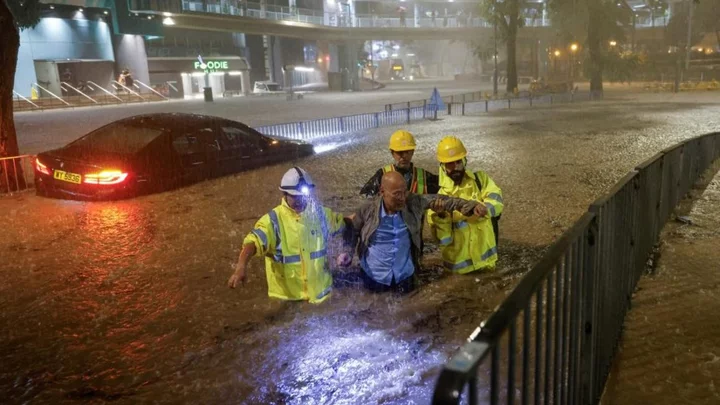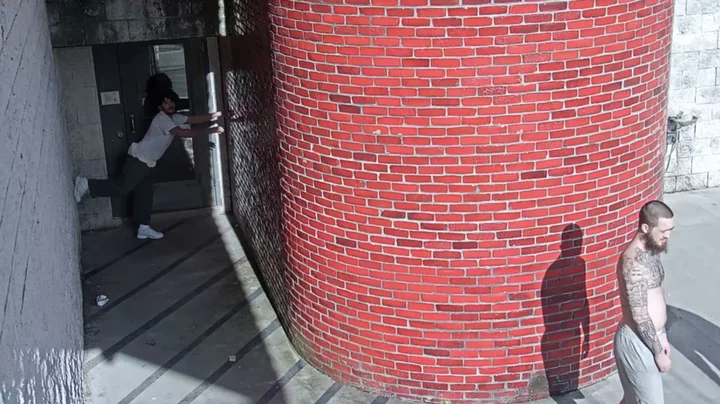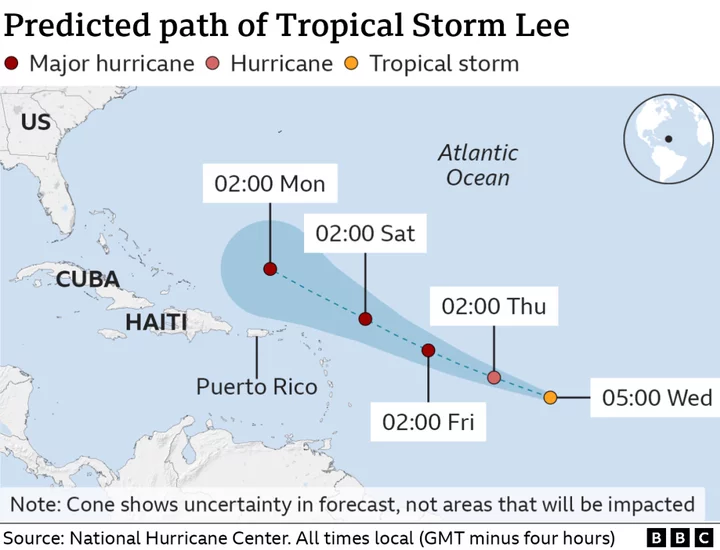
This is why you have weird dreams in the heatwave
Everyone has a theory about their dreams and the science or meaning behind them. And when the weather hots up, the more bizarre they tend to get. “Dreams are a fascinating and enigmatic phenomenon that occur during sleep, encompassing a vast realm of imaginative experiences,” says sleep expert and CEO of MattressNextDay, Martin Seeley. “They are a collection of thoughts, images, sensations, and emotions that unfold within the theatre of our minds.” Why do we dream? When we sleep, our brain enters a complex state where it engages in various cognitive processes, explains Seeley, including memory consolidation, problem-solving and emotional regulation. “Dreams are thought to emerge from these processes, weaving together fragments of memories, desires, fears, and subconscious thoughts into a narrative or non-linear sequence,” adds Seeley. “And they can be surreal, vivid, or mundane, blurring the boundaries between reality and fantasy.” While the precise purpose and meaning of dreams remains a subject of exploration and debate, Seeley says they can serve as a portal into the inner workings of our minds: “Providing a canvas for exploration, processing of emotions, and glimpses into the subconscious depths of our psyche.” Why do we dream more when it’s hot? Lisa Artis, deputy CEO of The Sleep Charity, says: “When the weather is hot, it can disrupt our sleeping patterns, making it difficult to fall asleep in the first place – and causes us to wake more often during the REM (rapid eye movement) sleep phase.” REM sleep is where we experience intense dreaming, explains Artis – so waking during or at the end of this cycle can mean we are more likely to remember our dreams. “Dreams happen regularly, but are often forgotten and our mind’s way of unpacking the day’s events, dealing with stress and sorting through our day-to-day thoughts,” notes Artis. Our body heat generally peaks in the afternoon then starts to drop over an evening to prepare us for sleep, says Artis. Melatonin, the sleep hormone, is produced when this happens.“An ideal temperature is around 16-18°C and anything around the 24°C mark can cause restlessness,” says Artis. “So, it’s no surprise that when we’re experiencing a heatwave with temperatures reaching over 30°C, it affects our sleep.”Can a heatwave really make dreams more surreal? The connection between heatwaves and the content or nature of dreams is not fully understood. However, there may be a few possible explanations if your dreams seem weirder when the weather heats up – although Seeley points out these are all speculative. First off, he agrees it may have a lot to do with the fact we’re less comfortable and waking more when it’s hot. “These frequent awakenings can interrupt the normal sleep cycle and result in a higher probability of remembering dreams, including the more unusual or vivid ones,” he notes. “So, during a heatwave, the increased frequency of waking up during the night might contribute to a greater recall of strange or funky dreams.” Secondly, the body’s physiological response to heat may influence brain activity, he adds: “Heat can affect neurotransmitter levels, such as serotonin and dopamine, which play a role in regulating mood and emotions. These alterations in neurotransmitter activity might impact the content and emotional tone of dreams, potentially leading to more surreal or bizarre experiences.” Psychological factors could also play a role. Heatwaves can cause restlessness and increased stress levels in some individuals. Seeley adds: “Stress and emotional fluctuations can manifest in dreams as strange or unusual scenarios, as the mind processes and attempts to make sense of these experiences.” Can we stop strange heatwave dreams happening? While it’s probably not possible to completely control the content of our dreams, there are certain strategies you can try to promote better sleep – and potentially reduce the likelihood of experiencing a restless night and unusual dreams during hot weather. Create a cool sleep environment: “Use fans, air conditioning, or open windows to circulate cool air in your bedroom – and consider using lightweight, breathable bedding materials,” says Seeley. Stay hydrated: “Drink enough water throughout the day to prevent dehydration, especially during hot weather,” he continues. “Being adequately hydrated can help maintain a balanced sleep cycle.” Practice relaxation techniques: “Engage in activities that promote relaxation before bed, such as deep breathing exercises, meditation, or taking a warm bath,” suggests Seeley. “These practices can help calm your mind and promote a more restful sleep.” Read More Charity boss speaks out over ‘traumatic’ encounter with royal aide Ukraine war’s heaviest fight rages in east - follow live All the times Kate has channelled the late Queen’s style since her death It’s not just dry skin: 5 things everyone needs to know about eczema YouTube begins verifying videos by UK doctors to tackle health misinformation
2023-09-08 17:45

What should you do if you think your child is being bullied at school?
As well as being exciting, the start of a new school year can be very scary for some kids – as the toxic dynamic between bullies and the children they target could resume. The prospect of a new year of bullying, or the first experience of being a target for school bullies, can blight the lives of pupils and become something that terrifies both them and their parents, who are often unaware of the persecution of their child. Indeed, new research by the anti-bullying charity The Diana Award for its #BacktoBullying campaign has revealed 65% of children are scared of going back to school, with a third saying the thought of returning to school makes them want to cry. And it’s not just the kids who are scared – the study found half of parents dread sending their children back to school due to bullying. “When the new school year starts it can be an exciting and sometimes unsettling time for children,” points out Martha Evans, director of the Anti-Bullying Alliance (ABA). “There will be new pupils, new class groupings and, for some, new schools. It can be a worrying time and we’re often told friendships and bullying are high on the list of worries. “Parents should be aware of the signs that their child might be on the receiving end of bullying behaviour, and know how to respond.” Evans says research suggests being bullied can have serious implications for a child’s life chances, with the effects often lasting into adulthood. That’s why anti-bullying training and programmes for schools, including Anti-Bullying Week (November 13-17), are so vital for schools to help tackle the problem. Evans says it’s useful for parents who are concerned about bullying to understand exactly what bullying is, as “it’s not just ‘falling out’ or ‘banter’”. The ABA defines bullying as: “The repetitive, intentional hurting of one person or group by another person or group, where the relationship involves an imbalance of power. Bullying can be physical, verbal or psychological. It can happen face-to-face or online.” What are the signs of bullying? Children might not want to talk about what’s going on, but Evans says warning signs of bullying may include… Coming home with torn clothes or missing belongings. “This could show your child is being picked on physically,” says Evans. Unexpectedly not wanting to go to school. Evans points out that while most bullying starts face-to-face at school, it often then goes online, too. Complaining of unexplained illnesses or headaches. “The stress of bullying can create physical symptoms, or the child may make up illnesses to avoid being bullied at school,” warns Evans. Becoming quiet and withdrawn. Evans says worrying about hurtful behaviour can cause deep anxiety, and children may look upset when they use their electronic devices. “Online bullying is particularly hurtful,” explains Evans, “as it follows a child even after they’ve left the school gates and can continue 24/7.” Children who are being bullied may want to leave for school much earlier than necessary or come home late, says Evans. “Avoiding other children arriving or leaving school is a sure sign something is wrong,” she points out. What should you do if your child is being bullied? Stay calm Evans says it’s important to keep your cool, even though you’re probably feeling angry and upset that your child is being targeted. “You should focus on gently speaking to your child and listening carefully,” she explains. “Your job is to reassure them that it can be sorted out.” Get the facts Talk calmly to your child and establish what’s happened and who did what, and when. Evans advises parents and children to keep a diary of when the bullying happens, and explains: “It will be useful to see the pattern of bullying over time and to share with the school, if and when you speak to them.” Tell them not to retaliate Evans says parents shouldn’t encourage their child to retaliate to bullying, especially through violence, as it can have negative and unpredictable results. “They may be hurt even further, or be seen by those in authority as the problem,” she warns, and suggests instead that parents tell them to walk away and get help. Be aware of mental stress Don’t underestimate the effect bullying can have on a child’s mental health and keep an eye out for warning signs. “Bullying can have a considerable impact on a child’s mental health,” warns Evans, “so if your child is showing signs of serious distress, such as depression, anxiety and self-harm, always see a GP.” Find out what your child wants Parents should ask their child what they want to happen next, advises Evans, and help them to identify their choices, the potential next steps to take, and the skills they have to help stop the bullying. Speak to the school Ask to see the school’s anti-bullying policy, so both you and your child know the process for getting things sorted out, advises Evans. Don’t let them blame themselves Sometimes children can think they’re to blame in some way for being bullied, but Evans stresses: “Make it clear that bullying is never acceptable and if a child or young person is being bullied then it’s others who are to blame, not them.” Read More Charity boss speaks out over ‘traumatic’ encounter with royal aide Ukraine war’s heaviest fight rages in east - follow live What women should do if they experience violence online Athlete who ran over 200km through the desert shares advice for running in a heatwave Women being invited to help shape the future of reproductive healthcare – from period pain to menopause
2023-09-08 15:15

Tonight Show host Jimmy Fallon apologises over 'toxic' workplace claims
The NBC's Tonight Show host has been accused by staff who blame him for a "toxic" atmosphere.
2023-09-08 14:58

Hong Kong and southern China battles widespread flooding from record rains
Locals are advised to stay home as record rainfall turns city streets into raging rivers.
2023-09-08 14:25

Johnny Kitagawa: J-pop agency's new boss Higashiyama also faces abuse allegations
Noriyuki Higashiyama said he could not recall if he had sexually assaulted juniors at the boyband agency.
2023-09-08 12:21

Kim Jong Un reveals 'nuclear attack submarine'
North Korea has not yet demonstrated that the submarine is actually operational.
2023-09-08 10:57

Apple shares slide after China government iPhone ban reports
The technology giant's stock market valuation has fallen by almost $200bn in the last two days.
2023-09-08 10:50

Red Bull 400: Amputee Milly Pickles completes 'world's steepest race'
Milly Pickles, 26, competed in the Red Bull 400 race six years after her below-the-knee amputation.
2023-09-08 09:28

Senator Tuberville: No truce over military blockade on abortion
Military leaders claim Tommy Tuberville's actions are a national security risk, but the senator is defiant.
2023-09-08 09:23

Ukraine war: Curfews and closures mark a Friday night in Kyiv
Last orders at 10pm, a midnight curfew, and Russian air raids. How does a night out work in a war?
2023-09-08 08:20

Danelo Cavalcante: Family 'terrified' by killer's escape from US jail
The search enters its second week as the fugitive eludes hundreds of police, tracker dogs and aircraft.
2023-09-08 08:15

Hurricane Lee may become first category five storm of Atlantic season
The storm has rapidly gained strength in the Caribbean from category one status earlier on Thursday.
2023-09-08 07:45
